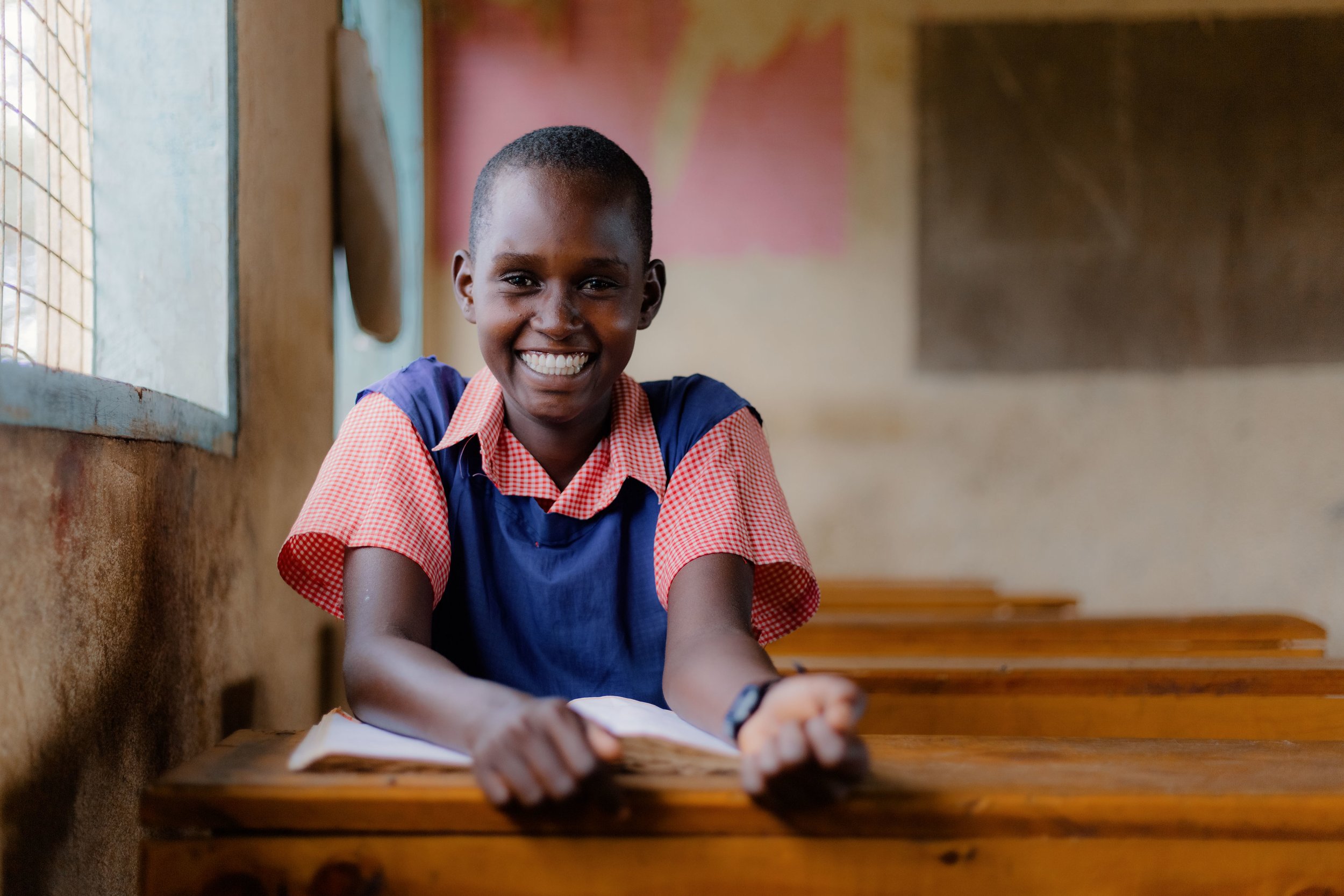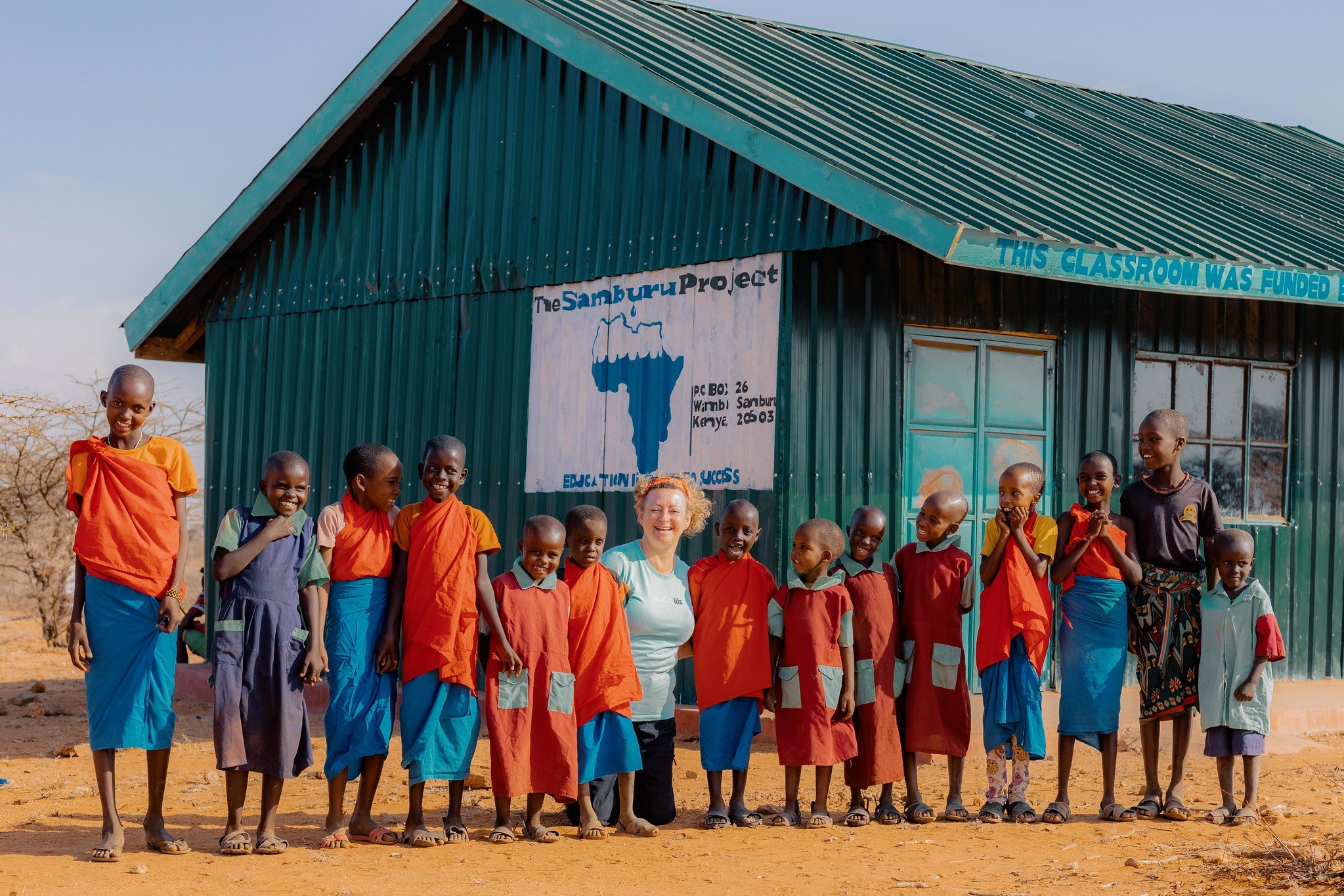
WATER AND EDUCATION
In Samburu, education is considered a luxury. Instead of spending their days in the classroom, many children are kept home to help care for their siblings, tend to livestock, and collect water. This burden usually impacts young girls the most, keeping them out of school, stunting their education, and limiting their opportunities outside of marriage. After a well is drilled in a community, the average time spent fetching water is reduced from 6 hours to 30 minutes. As a result, the number of girls attending primary school in our well communities has doubled! That is the impact of clean water.
ACACIA CLASSROOMS
It may seem like an unusual combination but, after a well is drilled, it is frequently the first change we see. A tree is chosen for shade, a rudimentary fence is constructed from thorny acacia branches, and make-shift log benches are arranged in neat rows. Within weeks, small children, have gathered to learn their ABC’s. Yapais Lesamana, who lives in Remot 2 village told our team, "this well gave birth to this nursery." Once a teacher has been selected, the community can apply to the government for an official school building and education in the village is forever transformed.
PARTNERING WITH SCHOOLS
Because of the undeniable impact of water on education, The Samburu Project has made an active effort to partner with schools around Samburu to drill new boreholes. With a water source that is safe and nearby, teachers at these schools no longer concern themselves with getting water before class and can now use that time to prepare their lessons and thoroughly cover curriculum. Students are also more likely to attend a school with water and, after a well is completed, we often see enrollment sky-rocket. To date, we have completed water points at 22 schools. We see these wells as investing in the children of Samburu, their future, and the contributions they will make to change our world for the better.

BEYOND WATER
With access to clean water, more children than ever are attending school in Samburu, but supplies are still limited. That is why, each fall The Samburu Project dedicates our Giving Tuesday campaign to fund school supplies and infrastructure for Samburu schools. In 2019, donors raised over $22,000 to provide Sionta, Lempuate, and Ntilal Primary Schools with desks, chairs, pens, pencils, textbooks, workbooks, maps, and other tools to help teachers inspire the next generation of young leaders.
EDUCATIONAL SCHOLARSHIPS
Increased access to clean water has allowed more children in Samburu to attend school, now it is our mission to help keep them there. In 2018, The Samburu Project began a scholarship program to keep hard-working students in the classroom. In 2022, we launched a partnership with The Thorn Tree Project, to expand this program, supporting the tuition and mentorship of 5 secondary school students.









